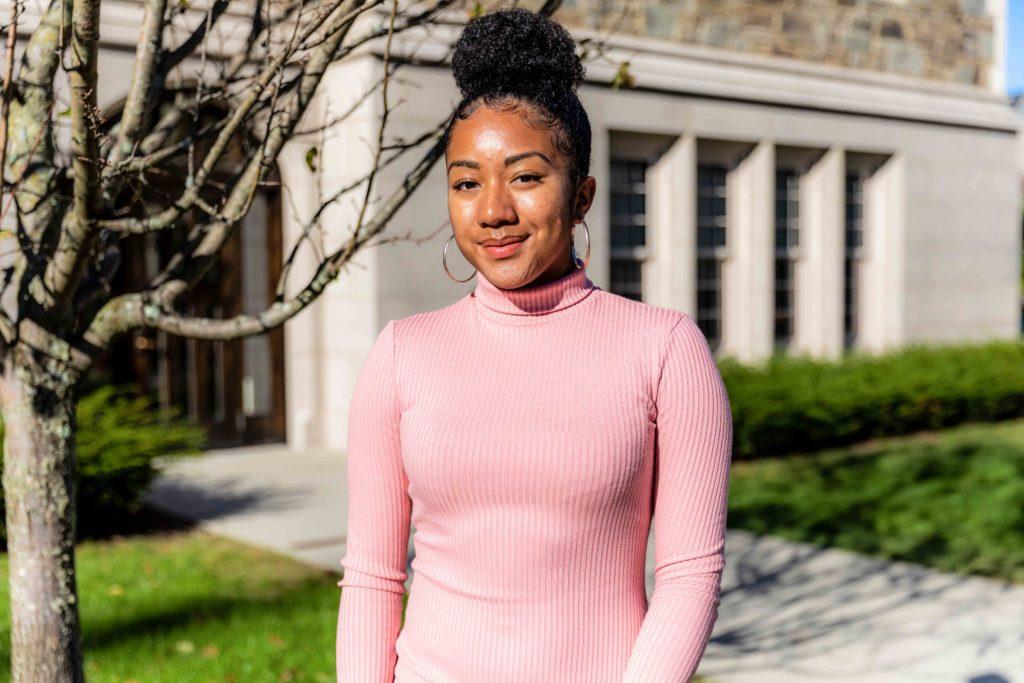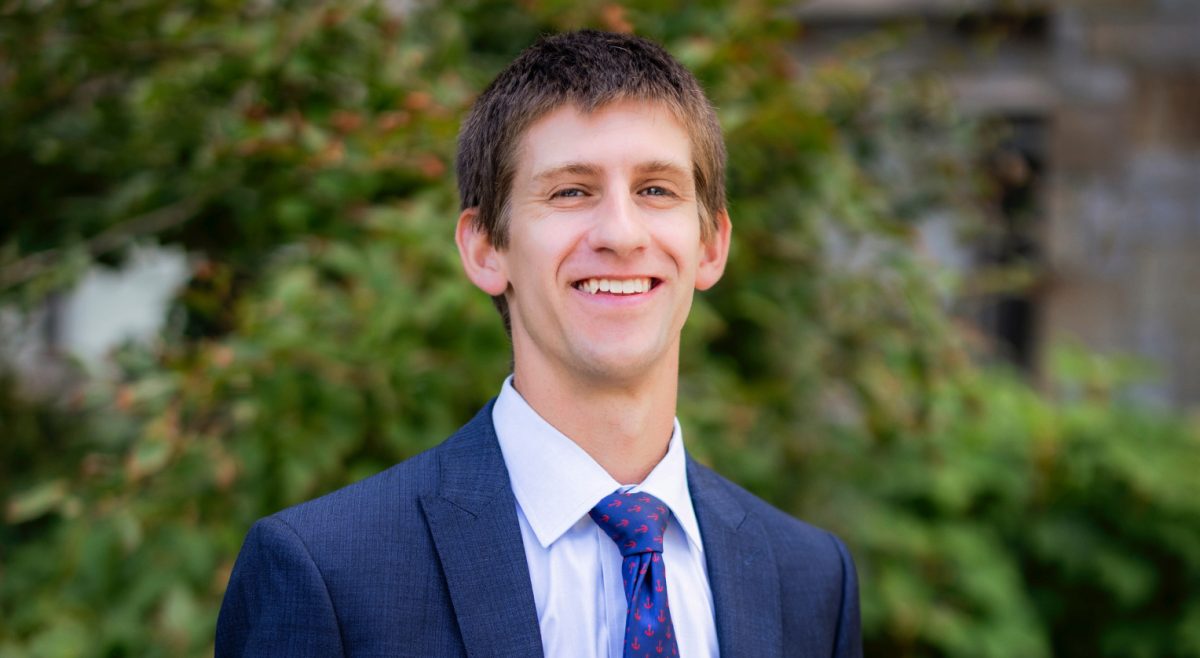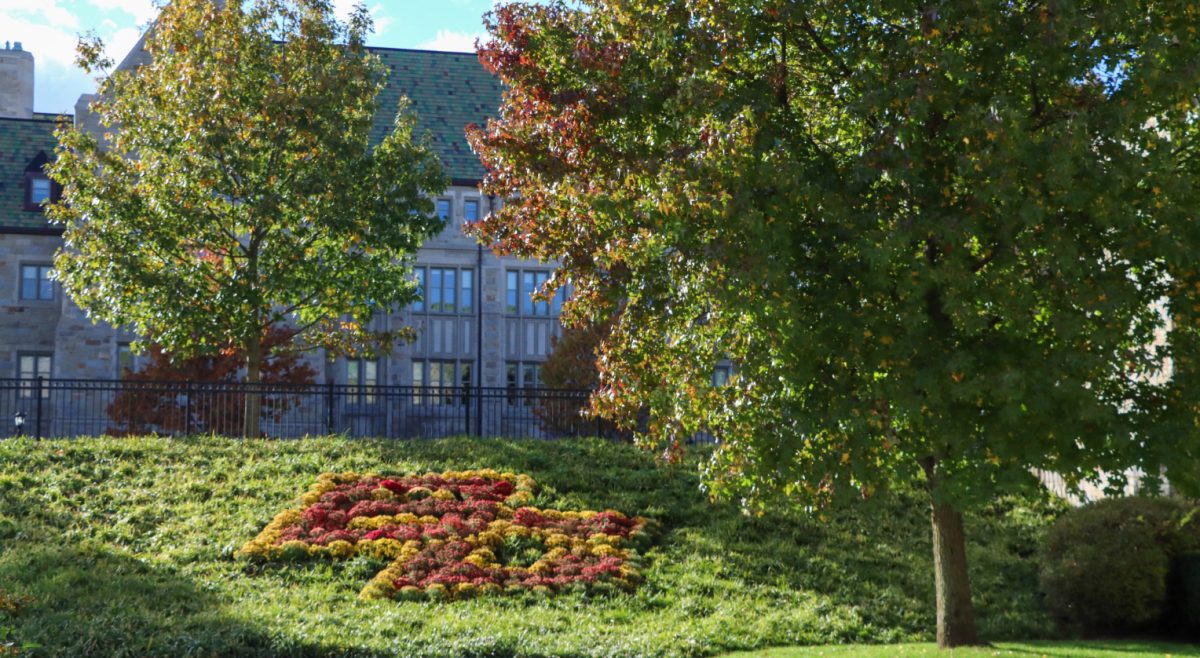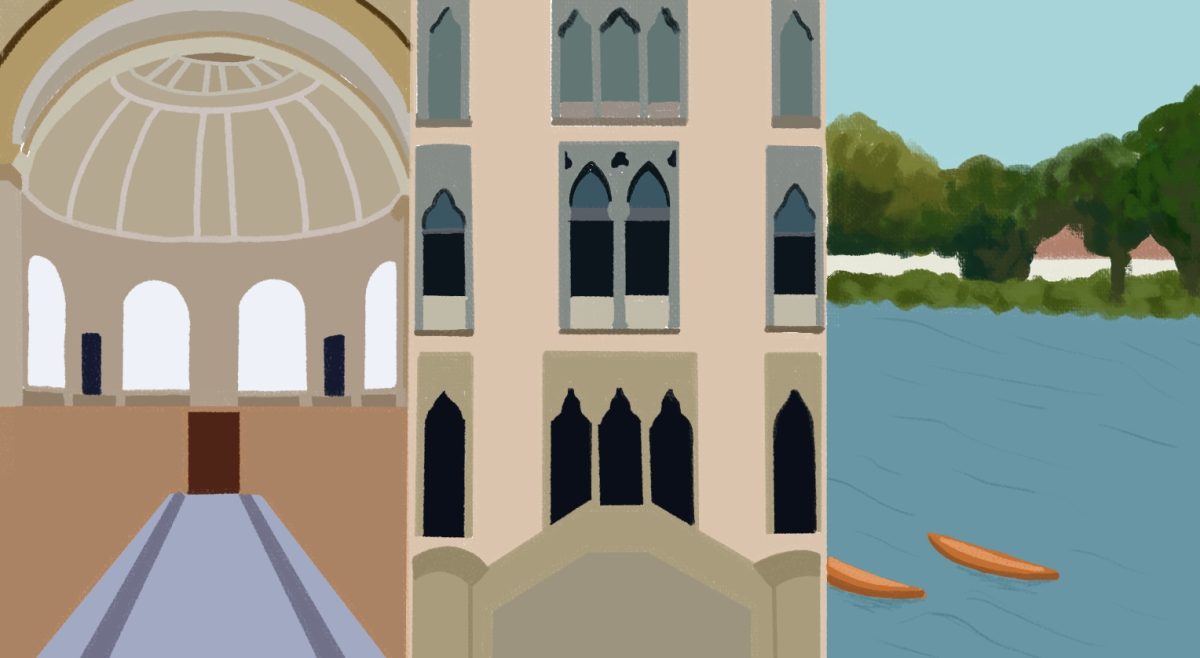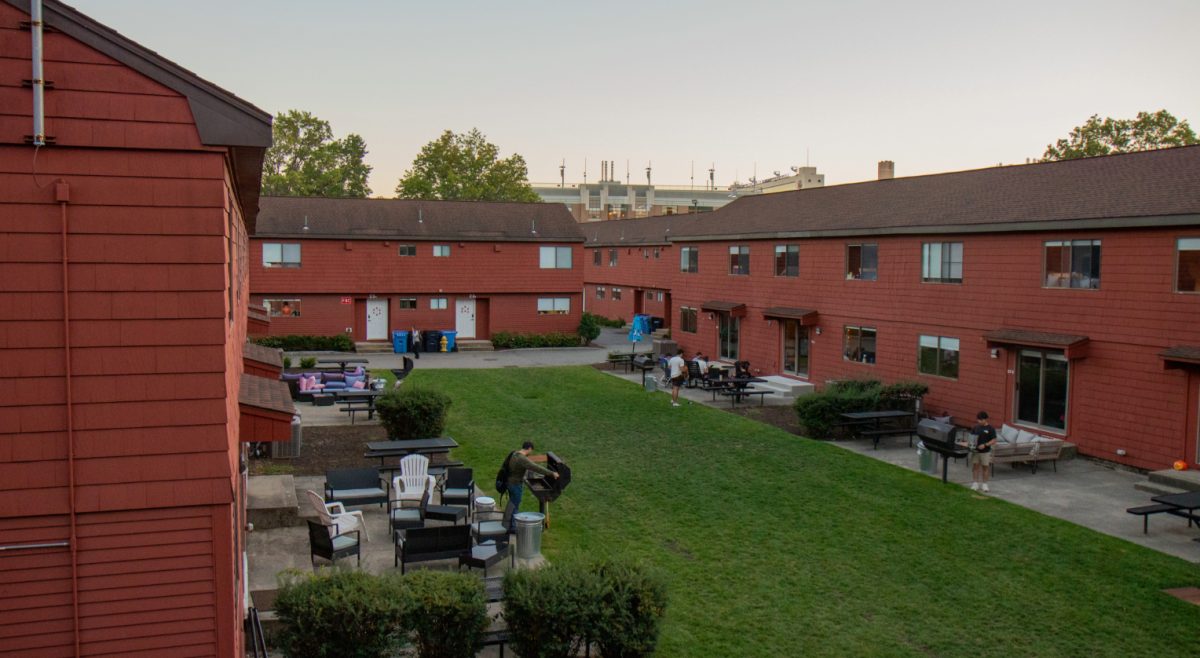As the first generation that grew up texting, Generation Z has an unparalleled command of acronyms. Two of the most common but least related in the Gen Z vocabulary are STEM (Science, Technology, Engineering, and Math) and BLM (Black Lives Matter). The former is a set of career paths students are encouraged to pursue given today’s advances in the fields, and the latter is a political movement that grew from public outrage over the deaths of several unarmed black people at the hands of law enforcement. The former is more quantitative, the latter is more qualitative. The former asks what it can do tomorrow, the latter answers what needs to be done today.
Trying her hardest to bridge the gap between these two acronyms is Ellana Lawrence, CSOM ’22. This past summer, Lawrence traveled to South Africa with a program called diiVe, a global leadership program in Cape Town, that seeks to train and inspire a new generation of ethically minded STEM workers who hope to aid the underprivileged in their technological pursuits.
In what’s called the “Silicon Valley of Africa,” she was given the opportunity to work with the Cape Innovation and Technology Initiative. Most of her time was spent researching the effects of global technology and education or consulting with firms such as Injini, an app that features games designed specifically for toddlers and preschoolers with cognitive or fine motor skill delays.
“I really think my purpose is to use technology as a resource to better the world and impact as many people as I can,” she said.
The internship was unique in that it asked its interns to consider how they could weave their concern for those less fortunate with their tech skills. But Lawrence had been tinkering with lines of code and pickets since high school.
Lawrence grew up in Queens, N.Y., and attended Little Red School House, a prestigious, progressive high school in lower Manhattan, founded in 1921 by Elisabeth Irwin—a gay educator and reformer who sought to promote social justice and feminism. The school has a progressive approach to teaching and encourages students to explore their purpose through independent projects.
The summer before Lawrence’s freshman year at the Little Red School House, the death of Eric Garner enraged New York City locals. Garner, a black man, died at the hands of a white police officer, Daniel Pantaleo, after being choked to death on the city sidewalk.
Pantaleo approached Garner after accusing him of selling unstamped cigarettes, and then arrested him, holding Garner down on the sidewalk by his neck. Garner repeatedly exclaimed, “I can’t breathe” 11 times, but Pantaleo refused to desist.
On the cloudy and overcast day of Dec. 12, 2014, shortly after it was announced that the Staten Island grand jury decided not to indict Pantaleo, the president of Little Red School House decided to hold a walkout to protest the decision. As Lawrence sat in the school’s auditorium for their weekly Friday morning meeting, the president said that if students wished to participate in the walkout, they should remain in the auditorium.
“I was like ‘Wow’. Even now I’m getting chills talking about it. It was insane—there was about 250 of us still sitting down. I was hesitant at first, but then I was like ‘I need to do this.’ I would feel so useless if I was just sitting down,” Lawrence said.
Together, the classmates made posters before marching through the streets of SoHo screaming “Hands up, don’t shoot!” and “Black lives matter!”
“It was extremely rewarding and empowering,” Lawrence said. “People were giving us high fives in the street and honking their horns in support, but I saw people crying. It was just an overwhelming amount of emotions.”
In this moment, Lawrence realized there was still so much work to be done in the criminal justice system, and as a black woman, she felt personally connected to issues pertaining to race relations.
After participating in the protest, Lawrence began getting her feet wet in the realm social activism. She founded the Black Student Union at Little Red School House and started going to conferences and hosting workshops. She even created her own documentary during her junior year of high school, Unfound Justice, which highlighted the pressing issue of police brutality and won the Princeton Prize in Race Relations Award.
The documentary was inspired by the day of the walkout, and with the help of her closest high school friends, Lawrence was able to craft her own interpretation of how racist police officers improperly influence the criminal justice system.
“Ellana was always someone who wanted to be involved in high school … especially if it was something that had to do with helping others,” said her best friend.
Around the same time, she also decided to join Girls Who Code at her high school. She had no prior computer science experience. Through joining this club, Lawrence landed a couple of impressive internships over the summer while still in high school. After her sophomore year, she interned with AT&T in Rockefeller Center in New York City.
It was an exhausting program, demanding Lawrence to work from 9 a.m. to 4 p.m. every day. After the experience, she decided computer science wasn’t for her.
After, Lawrence was unsure of what would come next. Through college visits and hearing about possibilities of alternative career paths, Lawrence realized she wanted to pursue a degree in information systems, which primarily focuses on how individual companies use technology.
“I was more of a strategist and wanted to interact with people, rather than being confined to behind my computer screen. … I really appreciate human interaction. I love having really deep, intimate conversations in person,” she said.
After her senior year, Lawrence scored what any young, hopeful technology enthusiast aspires to achieve: an internship at Google.
“It was intense. They described it as learning a semester’s worth of computer science information in three weeks. I left with a headache everyday … but it was a great experience,” she said.
Lawrence enjoyed many of the perks of working at Google: unlimited access to a supply closet full of Google goodies; a game room equipped with everything from video games to skee-ball; and a grand cafeteria serving endless amounts of gourmet desserts, wraps, smoothies, and fruit.
Aside from the more social aspect of working at Google, though, Lawrence was able to zero in on developing her business and technological skills. For her final project, she was tasked with designing her own app, which would give her the chance to actually use well-known coding languages, such as Javascript and Python. With the idea of helping others in mind, Lawrence chose to engineer a self-esteem app.
“It was pretty much an app for encouragement that would give you pieces of advice throughout the day,” she said.
Bidding farewell to Google and her closest family members, Lawrence packed her bags to move up north to Boston College.
Lawrence carried over the momentum she built up in high school to BC in 2018. As a Gabelli Presidential Scholar, Lawrence set the bar high for herself. After arriving on campus, she immediately immersed herself in everything BC had to offer—taking classes with renowned professors, going to job and start up fairs, and becoming involved with different diversity initiatives on campus.
Lawrence continuously strives to find ways to not only highlight, but promote diversity on campus. She is a member of the Campus Activities Board, as well as the diversity team for the Fulton Leadership Society, which is a student-run honors program in the Carroll School of Management. This semester, she hopes to work at a job fair for students of color that’s designed to provide more opportunities in the business sector.
With such a busy schedule, Lawrence now spreads her efforts across several fields, all while keeping justice at her forefront. The gap between the qualitative and quantitative remains, but that’s not stopping her.
“I haven’t found an intersection between [them], but I know I will,” she said.
Featured Image by Jess Rivilis / Heights Staff

